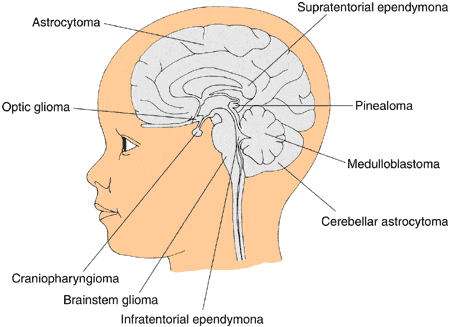We give you and your family the best and safest care possible. We offer a comfortable and welcoming environment at every step of your journey.
The neuro-oncology program sees kids:
- Referred by their primary care doctor
- Looking for a second opinion on a care plan for their tumor
- Who need observation or cancer care for their tumor
- Who need continued follow-up after cancer care
Your First Visit
Please make sure you have your child's:
- Medical history
- Past exam notes
- Recent imaging
- List of medications
- Test results
- Procedure reports
Feel free to contact our team if you have any questions before your visit.
The neuro-oncology program includes a team of experts who tailor a care plan to your child. We involve you in decision-making at each step — diagnosis, treatment and follow-up care. We are just a phone call away at any time.
Our experts include:
- Brain surgeons: They do precise, image-guided biopsies and brain tumor surgery.
- Cancer doctors: The cancer care team works with kids who need chemotherapy or radiation. They provide long-term, follow-up care, as well.
- Radiation experts: We partner with Froedtert Hospital's Department of Radiation Oncology. These experts provide state-of-the-art radiation treatment while minimizing long-term side effects.
- Endocrinology: Kids with brain tumors may have hormone issues from the tumor, surgery or cancer care. This expert checks for and manages these problems.
- Genetics: Works with kids who have underlying genetic issues causing their cancer.
- Brain experts: Our neurologists manage the care of kids with brain tumors. They manage any seizures or other neurological problems that arise.
- Eye doctors: Our ophthalmologists specialize in pediatric care and have training in taking care of the patients with eye problems related to brain tumors or treatment of them.
- Neuropsychology: Kids can develop learning difficulties after cancer treatment. This expert tests each child's strengths and weaknesses to find out what kind of help they need.
- Brain scan experts: Our radiologists review all scans done at diagnosis, during and after cancer care. They are experts in interpreting MRI and CT scans.
- Neuropathology: These experts analyze tissue samples to help our team get the correct diagnosis and care plan.
- Rehabilitation experts: Children may need physical, speech or occupational therapy after cancer care. Our physical medicine and rehabilitation experts help them regain lost motor skills and strength.
- Family support services: Our child life specialists, psychologists, social workers and palliative care team support you and your child.
During Diagnosis
Our first step is to diagnose your child's glioma accurately. We use cutting-edge techniques, including MRI and molecular testing. We use this information to accurately diagnose the tumor type and plan surgery to remove it.
Based on the types of care they need, some kids access our Fertility Navigation Program. This is a way to discuss their options for having kids in the future.
In the Hospital
Our care teams create a welcoming, familiar, healing environment if your child needs hospital care. You'll meet daily with our medical teams to get a status update. They'll check that you and your family are comfortable.
Our expert nurses check in with you and your child throughout the day to ensure you have everything you need. To make your time with us as comfortable as possible, we have a:
- Family lounge
- Fully stocked kitchen
- Laundry facilities
- Young child playroom
- Teen center
After Treatment
Our team is here for your family after your child finishes their cancer care. You can contact your care team or the neuro-oncology program. We can answer questions about long-term care, future screenings and maintenance. You'll also have continued access to counseling, support groups and other resources.
Children recovering from a brain tumor may need rehabilitation services. This may include physical, occupational and speech therapy.
Young adults who are currently receiving or have received cancer treatment can get support through our young adult oncology group. The group meets monthly to help young adults (18-39) with cancer or recovering from it to share experiences and plan activities.
After treatment, you'll enter the Bridge to Next Steps program. This program helps you and your child transition into post-therapy care. The program consists of two visits. You will meet with a survivorship provider and a psychologist. They'll provide education, a summary of care and support.
At least two years after your child completes treatment, they can enter the Next Steps Clinic. This long-term follow-up program cares for cancer survivors. Our care team monitors for recurrence, manages late effects and promotes overall well-being.





